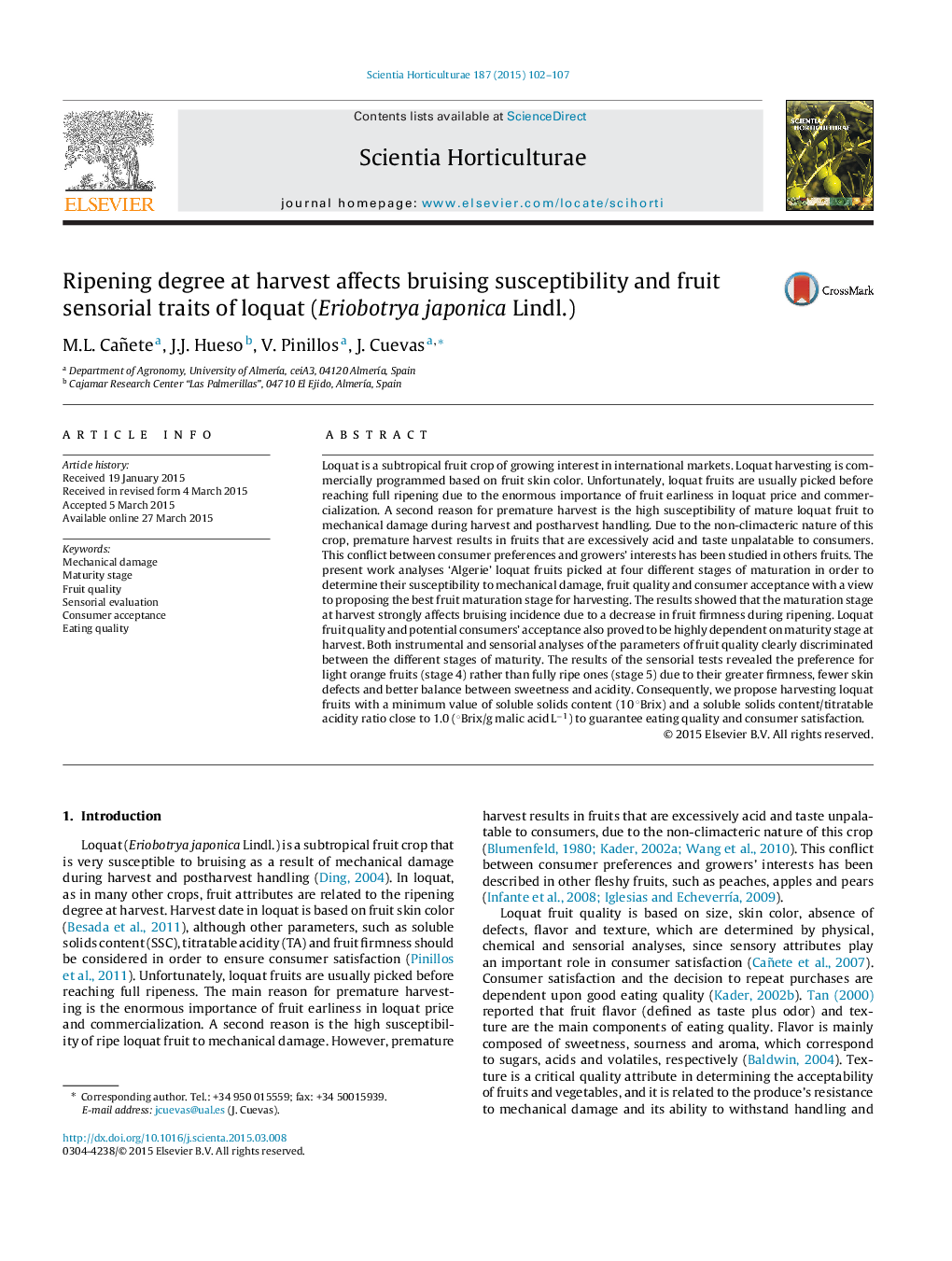| کد مقاله | کد نشریه | سال انتشار | مقاله انگلیسی | نسخه تمام متن |
|---|---|---|---|---|
| 4566368 | 1628811 | 2015 | 6 صفحه PDF | دانلود رایگان |

• Maturation stage at harvest strongly affects bruising incidence in loquat.
• The damage in the fruit produced in response to mechanical impacts increases with ripening degree.
• Sensorial and instrumental analyses clearly discriminate between different stages of maturity.
• Harvesting loquat with a minimum of 10° Brix and a SSC/TA = 1 is proposed to guarantee eating quality.
Loquat is a subtropical fruit crop of growing interest in international markets. Loquat harvesting is commercially programmed based on fruit skin color. Unfortunately, loquat fruits are usually picked before reaching full ripening due to the enormous importance of fruit earliness in loquat price and commercialization. A second reason for premature harvest is the high susceptibility of mature loquat fruit to mechanical damage during harvest and postharvest handling. Due to the non-climacteric nature of this crop, premature harvest results in fruits that are excessively acid and taste unpalatable to consumers. This conflict between consumer preferences and growers’ interests has been studied in others fruits. The present work analyses ‘Algerie’ loquat fruits picked at four different stages of maturation in order to determine their susceptibility to mechanical damage, fruit quality and consumer acceptance with a view to proposing the best fruit maturation stage for harvesting. The results showed that the maturation stage at harvest strongly affects bruising incidence due to a decrease in fruit firmness during ripening. Loquat fruit quality and potential consumers’ acceptance also proved to be highly dependent on maturity stage at harvest. Both instrumental and sensorial analyses of the parameters of fruit quality clearly discriminated between the different stages of maturity. The results of the sensorial tests revealed the preference for light orange fruits (stage 4) rather than fully ripe ones (stage 5) due to their greater firmness, fewer skin defects and better balance between sweetness and acidity. Consequently, we propose harvesting loquat fruits with a minimum value of soluble solids content (10 °Brix) and a soluble solids content/titratable acidity ratio close to 1.0 (°Brix/g malic acid L−1) to guarantee eating quality and consumer satisfaction.
Journal: Scientia Horticulturae - Volume 187, 13 May 2015, Pages 102–107